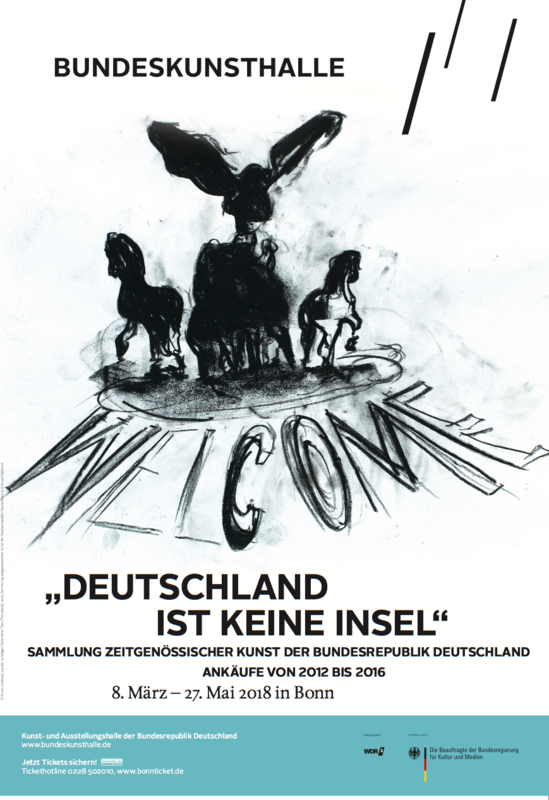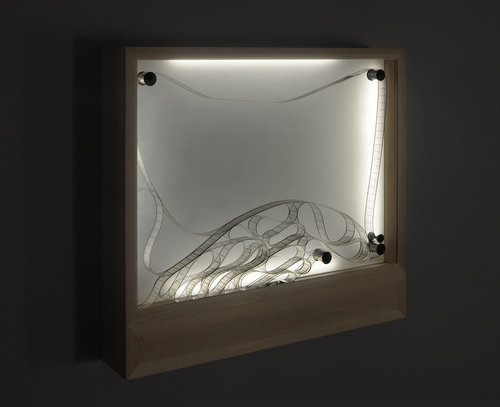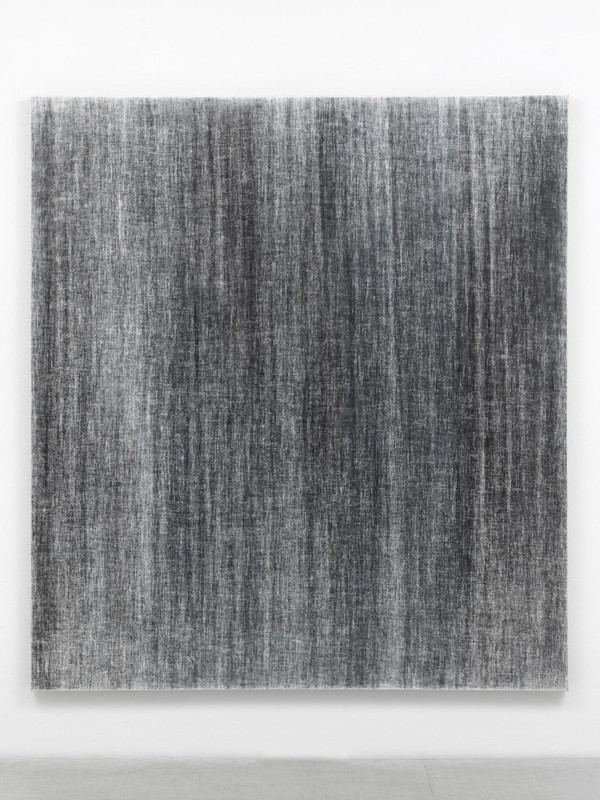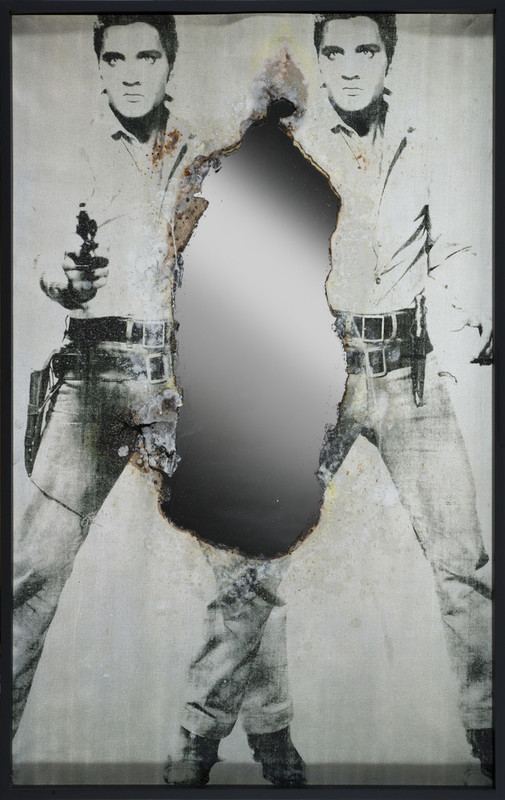‘Germany is not an Island’: a timely, hybrid display of contemporary art in 2018
Upcoming Exhibition: ‘Germany is not an Island’, Bundeskunsthalle, Bonn, Germany, 8 March – 27 May 2018.
‘Germany is not an Island,’ will open to the public in two days time. Around 150 works, by 81 artists, will be on display at the Bundeskunsthalle, Bonn, near Cologne. The works to be exhibited have been acquired over the previous five decades by a committee of experts for the Collection of the Federal Republic of Germany. Each artwork was chosen for its ability to reflect, whether directly or indirectly, the socio-political tensions apparent in present-day Germany.
The show’s title – “Germany is not an island” – has become a popular axiom amongst the country’s public figures. Germany, like many other European countries, has experienced its share of political disquiet in recent years. This expression aims to highlight the extent to which issues of marginalisation exist throughout Europe. It is a call to unity and a rejection of isolationism. In the context of this exhibition, the aphorism stresses Germany’s inclusivity and multiculturalism, as a place where everyone is welcome. Moreover, a place where all artistic forms can thrive.
Art succeeds by confronting the status quo. When ideas stagnate, art opens up new spaces for discussion. It challenges us to rethink societal norms.

Exhibition Press Release poster. Image courtesy the museum.
As the exhibition’s press release states: ‘Art does not need any kind of societal consensus or agreement in order to function, it is, above all, independent.’ It is this independence that allows it to maneuver through the intricacies of contemporary politics. Art is never apolitical and this exhibition will explore its potentials and its boundaries.
With this in mind, it is no surprise that the celebrated artists, Rosa Barba (b.1972), Paul Czerlitzki (b.1986) and Douglas Gordon (b. 1966) – each of whom live and work in Germany, were selected for the exhibition.
Rosa Barba
Based in Berlin, Rosa Barbaworks with celluloid to create conceptual sculptures, installations, texts and sound pieces. The artist has been exhibited in galleries and museums at an international level.
Barba takes a sculptural approach to film and cinema. By manipulating its elements, she creates mobile objects and installations with multi-sensorial features.
Her exhibition at Turner Contemporary, ‘Subject to Constant Change,’ presented a dynamic arrangement of filmic sculptures: analogue projectors, ‘colour watches’ and a typewriter. Each object was animated by moving strips of celluloid noisily passing through looping trajectories. The exhibition was organised in tandem with ‘Turner’s Perspective’, a display of JMW Turner’s studio drawings as selected by Barba from the Tate collection. As Barba has reflected, ‘Turner’s diagrams and perspective drawings echo my thoughts about orchestrated and fragmented choreographies in space and how this experience can be approached from different perspectives.’
Coupez Ici (2012)
Barba’s piece Coupez Ici (2012), which was exhibited at this iconic exhibition, alludes to obscure points of reference in the history of cinema. The work reveals a looping film reel encased within a light-box. Inscribed upon the reel is the French instruction, “nejamaiscoupercette amorce!” (“never cut this strip!”). Since Barba’s title instructs an opposite command (“Coupez Ici” translates as “cut here”), a nonsensical back-and-forth is enacted between the artwork and the viewer. This cyclical interaction is then reflected in the undulating labyrinth of film. The ubiquity of digital cameras has led to the demise of analogue film; by reintroducing the medium in this way, Barba asks us to re-evaluate its historical significance and whether old processes can remain relevant today.

Rosa Barba, Coupez Ici, 2012. Installation view at Turner Contemporary, 2013. Image courtesy artist and gallery.
Paul Czerlitzki
Paul Czerlitzki, who lives in Düsseldorf, reflects upon painting’s inherent components. The artist has developed a methodological process with which he can repeatedly examine, discover and critically analyse painting’s preconditions. He is also meticulous in the installation of his paintings. As a result, his practise is concerned with the spatial parameters that can frame a painting.
Untitled (2015), sees a continuation of the artist’s holistic approach to the medium. Typical of Czerlitzki’s process, the resulting aesthetic is one that reveals the traces of the artist’s gestural movements. Particles of pure pigment are spread in thin layers across the surface of the canvas. It is this residual coating of material that draws attention to the painting’s own materiality.

Paul Czerlitzki, Untitled, 2015. Image courtesy artist and gallery.
Douglas Gordon
douglas Gordon, who has worked in Berlin for a decade, won the Turner Prize in 1996. The following year he represented Britain at the Venice Biennale. Though Gordon started his career as a performance artist, he has gone on to produce a variety of works in different mediums, including video, sound, photography and text. Gordon’s practice has largely involved distorting collective memory through the use of repetition and appropriation. Taking imagery from the public realm, such as Hollywood films, sporting footage and scientific documentation, Gordon’s diverse body of work combines humour and dread to recalibrate the viewers’ sense of the familiar.
Self Portrait of You and Me (Double Elvis) (2010)
Self Portrait of You and Me (Double Elvis) (2010), takes an image by Andy Warhol and, by charring the print and disfiguring its body, Gordon demystifies the aura that surrounds the singer. Quintessential of the artist’s practise, popular heroic figures are immortalised not as relevant symbols of success but rather distant memories.
Gordon is commissioned to produce an original public artwork for the new Crossrail station at Tottenham Court Road, London, which is set to open in December 2018.

Douglas Gordon, Self Portrait of You and Me (Double Elvis), 2010. Image courtesy artist and gallery.
‘Germany is not an Island’ will provide a broad overview of the country’s contemporary artistic production and will centre its focus upon the critique of European political discourse. On display will be a selection of established and emerging artists working with a breadth of mediums from installation to video, sculpture to photography, and painting to acoustic pieces. This variety is representative of the coexisting cultures, worldviews, religions and lifestyles present within German society.
If you are in Cologne from 8th March, do not miss the opportunity to see this important show.
Author: George Greenhill
Cover image: External photograph of the Bundeskunsthalle Museumsmeile, Bonn, Germany.
